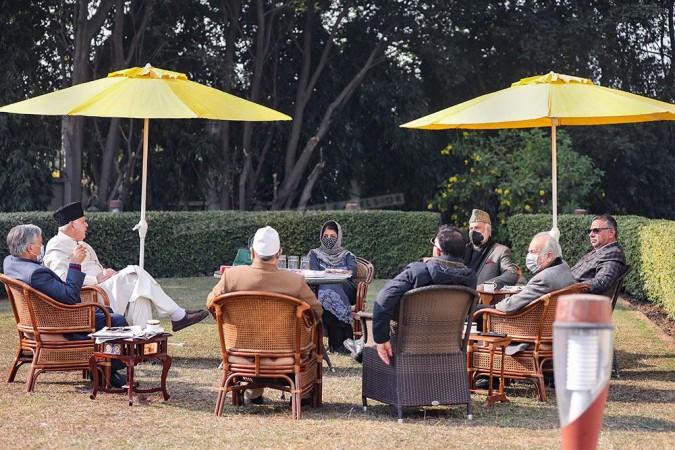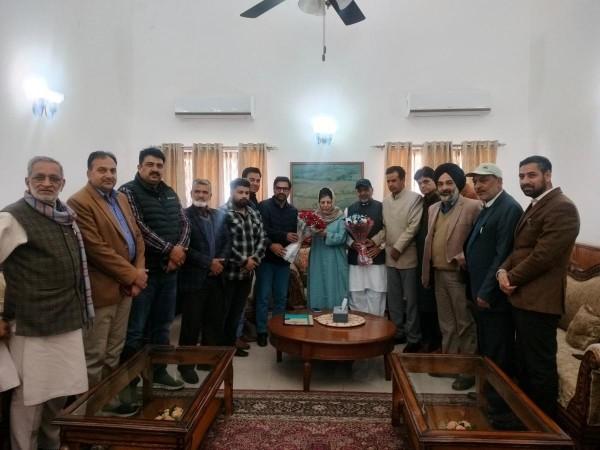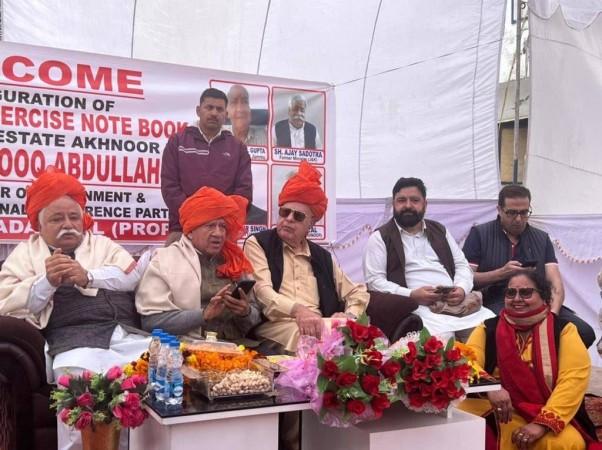
As the National Conference (NC) president Dr. Farooq Abdullah opposed engaging in dialogue with Pakistan following the Gagangir terror attack, People's Democratic Party (PDP) chief Mehbooba Mufti voiced her disagreement. She advocated for renewed diplomatic talks with Pakistan, emphasizing the importance of dialogue to achieve lasting peace in Jammu and Kashmir.
Mehbooba Mufti stressed that the ongoing hostility between India and Pakistan is the root cause of violence in the region. She underscored that without diplomatic reconciliation, incidents like the recent Gagangir terror attack will continue to claim lives and deepen the suffering of the people of Jammu and Kashmir.
Speaking to reporters after visiting the family of a doctor killed in the Gagangir attack in Budgam, Mufti extended her condolences and expressed her deep concern over the unrelenting cycle of violence. She noted that the people of Jammu and Kashmir bear the brunt of the Indo-Pakistani conflict, and without dialogue, the region will continue to witness tragedies like Gagangir.

"Until there is a serious reconciliation effort between the two nations, attacks like Gagangir will keep happening," Mufti warned. She called for a return to the diplomatic efforts initiated under former Prime Minister Atal Bihari Vajpayee, whose outreach to Pakistan had been instrumental in reducing tensions and promoting peace.

Farooq opposes dialogue with Pakistan.
In contrast, Dr. Farooq Abdullah has firmly rejected the idea of talks with Pakistan at this stage. On Monday, following the Gagangir attack, he declared that dialogue with Pakistan could not take place as long as terrorist activities continued in Jammu and Kashmir.
"Terror and talks cannot go hand in hand," Abdullah asserted, adding that such attacks hinder any possibility of improving relations between India and Pakistan. He further emphasized that "Kashmir will never become Pakistan" and urged Pakistan to cease its support for terrorism if it genuinely seeks better relations with India.
Dr. Abdullah also cautioned Pakistan that its current actions would have "severe consequences" and reiterated India's commitment to combat terrorism decisively.
The divergence between these two prominent leaders reflects the deep political divide in Jammu and Kashmir over how to address the region's complex challenges. On one hand, Farooq Abdullah, a seasoned politician and former Chief Minister, believes that any dialogue is futile as long as Pakistan continues to sponsor terrorism. His position aligns with a more hardline, security-focused approach to dealing with cross-border violence.
On the other hand, Mehbooba Mufti, also a former Chief Minister, has consistently argued for diplomatic engagement as a critical step toward peace. In her view, isolating Pakistan from the dialogue process will only prolong the conflict. She believes that Jammu and Kashmir's unique geopolitical situation requires a comprehensive approach, which includes engaging all stakeholders, including Pakistan, to resolve long-standing tensions and foster stability.
Mehbooba's call for dialogue is rooted in her belief that previous diplomatic efforts, like those made during Vajpayee's tenure, demonstrated the potential for meaningful progress when India and Pakistan engage in constructive talks. For her, reopening these channels of communication is essential to ending the violence that has plagued the region for decades.
Politicians are divided over holding dialogue with Pakistan.
In the complex and often volatile political landscape of Jammu and Kashmir, the debate over engaging with Pakistan remains a contentious issue, with both leaders representing opposing schools of thought. Farooq Abdullah's hardline stance reflects his belief in a zero-tolerance approach to terrorism, while Mehbooba Mufti's advocacy for dialogue underscores her commitment to seeking a peaceful resolution through diplomacy and engagement.
As the political leadership grapples with these differing perspectives, the people of Jammu and Kashmir continue to live in the shadow of violence, caught between two nations locked in conflict. The debate over dialogue with Pakistan remains a critical issue, with far-reaching implications for the region's future.

















